#africandevelopment
Text
Sons Of Pharaohs in Modern Afrika!
youtube
Greetings people, hope everyone's well. Just sharing a new video from brother Kamji, getting into more evidence that West Africans descend *primarily* from Ancient Kemetyu.
I like that right at the start he clarifies that when it comes to classical Afrikan history, we see "countless intra-continental diasporas." Kamji will be coming on my channel again this Friday for more on this. Learning this stuff is confirming something that I've long thought - that our current ethnic identities are very, very new and that we should not hold too tightly to them. We have a long, intricate history of continental inter-connection. All of our ethnic groups derive from older social groups going back 10s of thousands of years. Kemet itself was populated by groups in the Hapi (Nile) river valley, who themselves descended from groups that resided in the Sahel/Chadian/Sudanic area, etc. I feel that we all need to have a good basic grasp of this classical African history. As we do, we will understand our modern Panafricanism to be an act of returning to our roots (Sankofa).
#africanhistory#panafricanism#afrocentric#africa#africandevelopment#black power#africanliberation#africanphilosophy#ancientkemet#ancientegypt#cheikhantadiop#theophileobenga#africanastudies#blackstudies#westafrica#africandiaspora#melanin#Youtube
0 notes
Photo
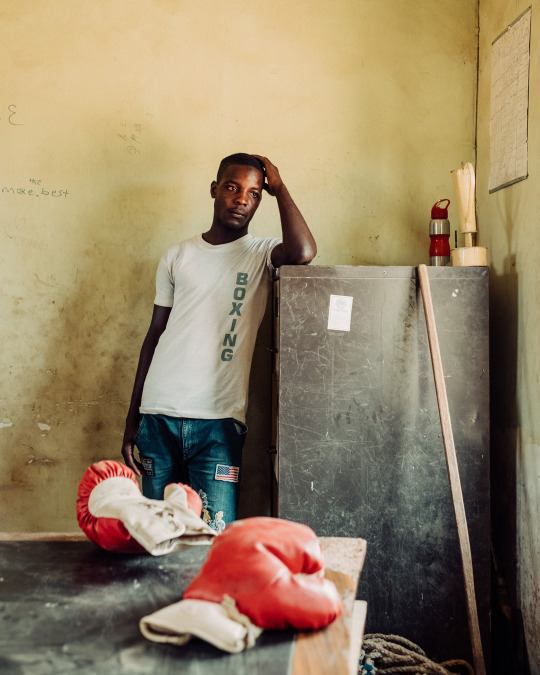
Auwal, 20, an ex-gang member that now trains at the Kano Amateur Boxing Association, Northern Nigeria, giving local boys an alternative to being radicalized by Islamic fundamentalist groups that operate in the region. . . . . . #ngo #internationaldevelopment #everydayafrica #nigeria #africa #boxing #africanboxing #africandevelopment https://instagr.am/p/CkbOEKcs8q4/
0 notes
Photo
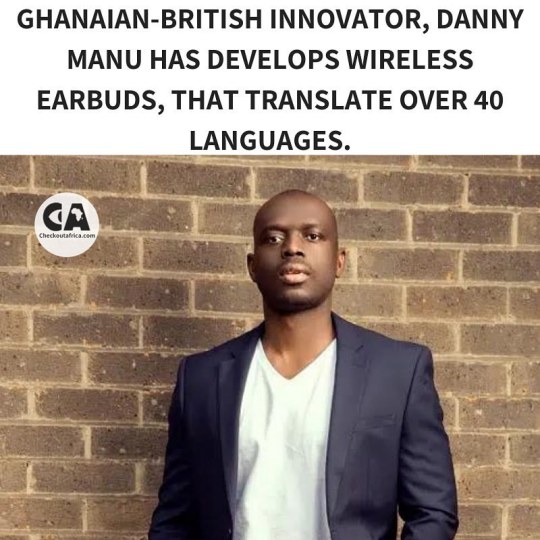
Meet Danny Manu, a Ghanaian-British man, has developed earbuds that auto-translate other languages. The earbuds can live translate over 40 languages. He's the founder of Mymanu @mymanuofficial Translation Earbuds. . . . . > CheckoutAfrica.com <| #Africa #African #EverythingAfrica #Africandevelopment #Africanpeople #Africanstyle https://www.instagram.com/p/CVK2donsOIW/?utm_medium=tumblr
101 notes
·
View notes
Photo
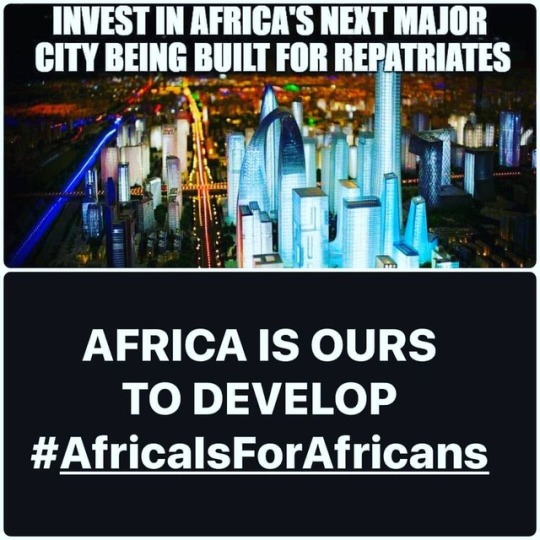
Just inteviewed this good Brother! Support him ASAP: Reposted from @kingrjmahdi - We are building a 600 Hectare total sustainable city for repatriates from the Diaspora to thrive and develop on the African continent! Our project has extensive development plans to sustain up to 10,000 families with food, jobs, medical and educational institutions and more! . . It's time now for YOU to get involved by reserving land, becoming an economic development business in the city or just contributing what you can!! . . GET INVOLVED WITH THIS HISTORIC PROJECT! . . INVEST OR PARTICIPATE at www.MadeInAfricaProject.com . . CONTRIBUTE BY DONATION AT www.GoFundMe.com/AlkebulanDevelopmentFund . . Tag A Pan-African #MadeInAfrica #AfricaIsForAfricans #Alkebulan #BuildAlkebulan #ComeHome #AfricaRising #FullCircle #TheYearOfReturn #Garvey #UNIA #AfricaUnite #LetsBuildAfrica #AfricanDevelopment #Repatriate #BackToAfrica #TheDiaporaReturn #LetsBuild https://www.instagram.com/p/BsTsQDPFpIK/?utm_source=ig_tumblr_share&igshid=4nwxq8wx11lv
#madeinafrica#africaisforafricans#alkebulan#buildalkebulan#comehome#africarising#fullcircle#theyearofreturn#garvey#unia#africaunite#letsbuildafrica#africandevelopment#repatriate#backtoafrica#thediaporareturn#letsbuild
2 notes
·
View notes
Text
In a significant achievement, KEC energises the 220 kV Muyinga-Gitega Transmission Line in #Burundi for #REGIDESO, the 1st 220 kV line in the country, part of the Rusumo Regional Hydroelectric Power station project currently being implemented jointly by Burundi, Rwanda & Tanzania.
View On WordPress
0 notes
Photo
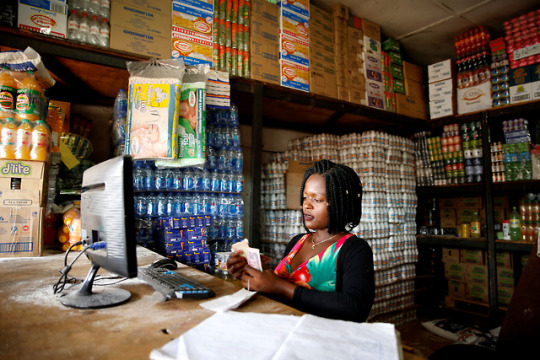
(via Discovering a more inclusive private sector development where least expected)
By Eyerusalem Siba
Editor's Note:
Below is a viewpoint from Chapter 5 of the Foresight Africa 2019 report, which explores six overarching themes on the triumphs of the past years as well as strategies to tackle the remaining obstacles for Africa. Read the full chapter on Africa's untapped business potential.
Small and medium-sized enterprises (SMEs) have the lowest rates of business survival worldwide, and it is generally difficult to grow employment in SMEs. Africa is no different. Viable businesses struggle with typical growth challenges around lack of access to capital and markets and the skills gap. Finding sustained solutions to these core private sector development challenges requires exploring territories beyond providing targeted support to SMEs, including building a more inclusive entrepreneurial ecosystem and embracing a more effective labor market and social protection policies.
Entrepreneurship needs to be nurtured, which should start with diagnosing the “scarcest resource” for enterprise development to maximize impact. Reliable funding is the lifeblood of any startup, yet in-depth knowledge of and experience in both domestic and international markets and managerial capability to run a firm of substantial size may well be far more important success factors than basic technical production knowledge. So how are the continent’s young populations and underrepresented groups supposed to acquire these much-needed entrepreneurial skills?
Africa is also home to one of the highest rates of necessity entrepreneurs in the world. Views on how to support necessity entrepreneurs are varied, ranging from giving the poor money to make use of their existing skills, to building firm capability, to overcoming sectoral and spatial mismatches to help necessity entrepreneurs transition out of existing enterprises or change the sector and location of current employment. The chosen tactic needs to be based on effective diagnosis of the scarcest resource and the market failures to be addressed. In many cases, microcredit and the provision of basic business trainings on technical skills can fail to generate meaningful impact on business performance of SMEs, notably for women-owned businesses.
While SMEs may have helped lift millions out of poverty through employment, provided first time employment to youth, and improved the wellbeing of SME owners, they have failed to create the large-scale and high-quality jobs that Africa needs. At the core of the challenge to SME development in Africa lies failed labor market policies and skill investment strategies to match the skill needs of growing industries. If growth of small firms into medium- or large-scale enterprises is a measure of success, most of these targeted micro-interventions would best be viewed as extensions of livelihood support programs. Within these programs, Africa needs the right mix of private sector development and labor market and social protection policies with clarity on which objectives are being promoted to improve targeting.
Beyond smart policies, inclusivity must be actively pursued by a range of stakeholders. This priority should be reflected in governments’ procurement policies, budgeting, and engagement with social entrepreneurs and innovators, as well as in the private sector’s participation in inclusive business models to advance both economic and social returns to investment.
Notably, for communities of stakeholders who chose to support a segment of underrepresented populations such as women and youth, a focus on the entrepreneur helps to identify binding constraints, leverage key strengths, and direct effective support. It is worth noting that women bring different sets of skills to labor markets; face different challenges within and outside their enterprises; and thrive in settings where a web of institutions and range of stakeholders promoting inclusion, forming an essential component of women’s “empowerment capital,” safeguard and promote their interests and address their specific challenges. The crucial ability here lies in identifying which skills and resources a woman needs to thrive in her given empowerment capital, and in expanding and enriching the latter.
Emerging evidence from psychology and experimental economics has advanced our understanding of effective pathways to best support women-owned SMEs. Notably, for successful interventions to be transformative, they need to move beyond basic access to financial and human capital and address central psychological, social, and skills constraints that women entrepreneurs face. Interventions which saw more transformative effects for female entrepreneurs have expanded capital and skill-centric programs with the provision of softer skills; agency, leadership, and mind-set considerations; market-focused programs, such as training to identify new market opportunities; and gender-lens investing to accommodate women participants’ schedules and provided free or affordable child care.
Finding lasting solutions to development challenges and creating a generation of entrepreneurs requires tapping into existing capabilities while filling gaps and scaling up successful pathways. Identifying cost-effective pathways should be an agenda of high priority to guide policies and inclusive and sustainable investments.
Related Content:
Foresight Africa: Top priorities for the continent in 2019
Spotlighting opportunities for business in Africa and strategies to succeed in the world’s next big growth market
Empowering women entrepreneurs in developing countries
[Entire post — click on the title link to read it at its original source: Chapter 5 of the Foresight Africa 2019 report.]
***
At Creative Sage™, we love to connect corporate leaders and entrepreneurs with good causes, and help companies start genuine Corporate Social Responsibility and Sustainability, Social Entrepreneurship, Intrapreneurship, Impact Investing and/or philanthropy programs that are a win-win for all partners. We’re also researching new developments in the Sharing Economy that include new business models to increase profits, and also support social good.
Please do not hesitate to email us if you would like to discuss your situation and find out more about how we can help your organization move forward to a more innovative and profitable future, strengthening your branding and resonance with customers while helping to do good in the world through appropriate, authentic CSR partnerships with nonprofits, philanthropists, educational institutions and programs, or government agencies and community organizations.
We can also help you connect with celebrities and other notable people who can help amplify your message of social good, or headline entertainment events and concerts for good causes. You can call us at 1-510-845-5510 in San Francisco / Silicon Valley. We look forward to talking with you!
***
#africa#africandevelopment#womenchangemakers#smes#sme#socialinnovation#socialimpactinvesting#socialentrepreneurship#socent#socinn#innovation#womenentrepreneurs#womensempowerment#development#womenshistorymonth#internationalwomensday#iwd2019
0 notes
Photo
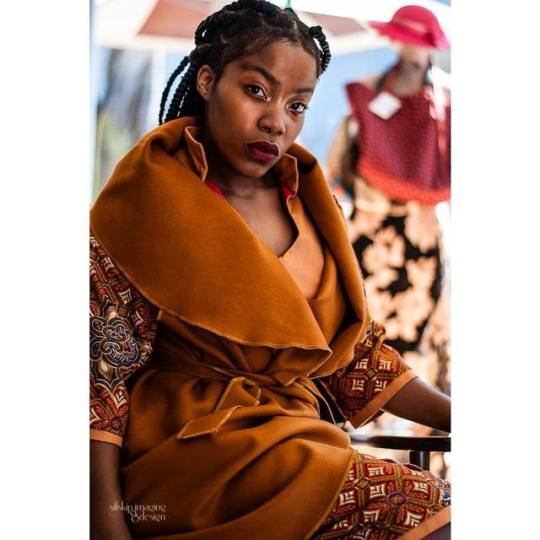
THE SWAZI COLLECTIVE . Loading... My first solo project for @sibantucreatives. I can't wait to share it with the world. I believe that African Creativity has it's place in the African Development story. Budding creative entrepreneurs hold part of the answer to addressing unenployment, innovation and economic growth. We need a platform and support to grow and collaborate and that is what Sibantu is creating. One voice. Photography Credit: @sifiskip Clothes by : @fabricfantasies Styling and Curating: Tiwi Gondwe #afribusiness #africandevelopment #development #innoviation #creativedevelopment #sibantu #creativeplatform #ecommerce #creative #swaziland #fashion #blackgirlmagic #entrepreneurship #africancreative #african #handmade #fashionrevolution #collaboration
#fashionrevolution#african#sibantu#handmade#ecommerce#entrepreneurship#swaziland#creativedevelopment#creative#afribusiness#africandevelopment#fashion#blackgirlmagic#collaboration#africancreative#development#innoviation#creativeplatform
0 notes
Photo
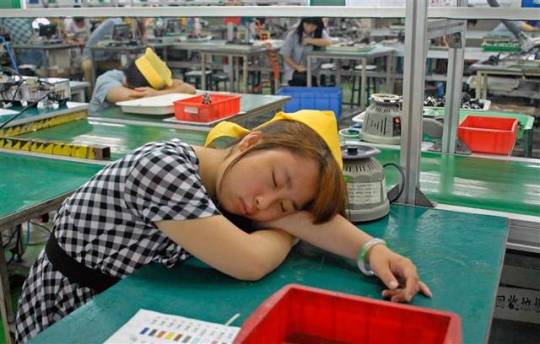
Being brought up in a capitalist world, most of us only look at the good which comes from it – like Iphones and Microsoft word. But not many people – besides chatting about it around family suppers and writing about it in school essays – stop to critique the mass production, along with the economic development it is bringing to China, and how it is affecting the people who dedicate their lives to a process from which they benefit so little.
Being an international relations student, one of the topics we focused on during the first semester was China’s mode of development in contrast to the Western liberal mode of economic development which is being endorsed worldwide through Structural Adjustment Programmes and neo-liberal policies implemented through institutions like the World Bank and International Monetary Fund.
Briefly, the “West” developed economically with the help of imperialism and colonialism. As we know, lots of areas were occupied by settlers and exploited economically of its natural resources and natives as a source of cheap labour. In addition to this, the West’s military power was and is used to impose the implementation of neo-liberal policies worldwide – which forces the entire world to subscribe to neo-liberal capitalism, a system which was established to be solely beneficial to the West – while the West also benefits from being a source of financial aid to economically weaker countries by having access to the return on these ‘investments’ in the form of insane interest rates.
How the Chinese developed so much economically did not come at the cost of cheap labour from foreigners during colonialism, but at the expense of a chunk of the Chinese population. China mass produces a wide variety of products, in a very short time, and sells it at prices which many other countries cannot compete with. As we all see, this has resulted in China becoming a giant monetary influence in the global capitalist world today – which is obviously beneficial for the country. However, looking at a Chinese Apple supplier factory as a point of reference, Chinese workers are underpaid and severely overworked. In a report conducted by the Chinese Labour Watch, it was found that workers are sometimes even scolded for asking for restrooms breaks and forced to sign falsified time cards after working 66 hour weeks which are signed as (and only legally meant to be) 49 hours long.
What I am basically trying to say is that for countries like South Africa, and the continent of Africa as a whole, which are battling to “develop” economically to the level of the US or China, the Western and even Chinese mode of development will not be foolproof. Both come with flaws and unfortunately, the nature of capitalism generally produces winners and losers – not just winners (economically, that is). For Africa’s economic development specifically, an “African solution” should be found.
#china#chineselabour#working class#chinesework#development#economic growth#africa#africandevelopment
0 notes
Photo
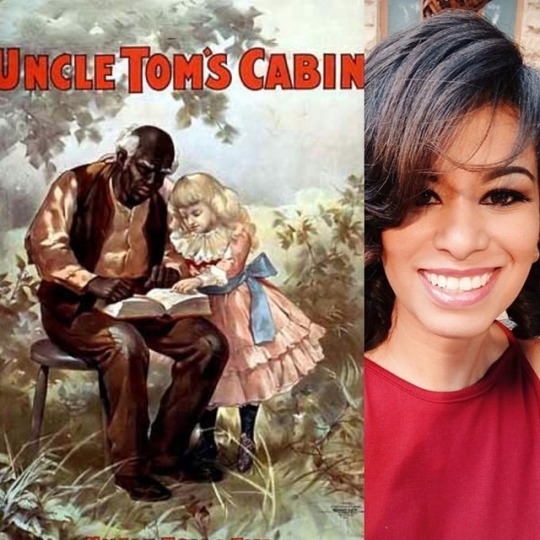
Thank You Dear Julie Gichuru @juliegichuru for sharing two times with me that your #favbookasachild “The Uncle Tom's Cabin" by Harriet Beecher Stowe. #uncletomscabin #harrietbeecherstowe #čičatominakoliba. Julie wrote on @Twitter on 08.12.2017: "Thank you so much! One of my #favbookasachild & even today is a book that BROKE my HEART, twice, and yet its powerful message on GOODNESS & HUMANITY is enduring. It is #UncleTomsCabin by #HarrietBeecherStowe #goodcauseselfie" Thank you so much dear Julie for sending me your #goodcauseselfie📚🎓🎈🐳🦉😎 and for giving support to campaign #inspireyoung on #reading #education #equality #humanity #art #stem #sport #greatachievements #dreams and to #nevergiveup!!!! 🎉🎉🎉🎉🎉🎉🎉🎉📚📚📚🎈🎈🎈🎈🎈 About Dear Julie Gichuru: Afro-optimist, wife, mother, change agent, child of God. Named one of 100 Most Influential Africans of 2017 by New African. Julie is dedicated to #family, she is married to Anthony Gichuru and they have had five #children. She also loves #reading and #traveling, working with #youngpeople... Julie Gichuru is an #entrepreneur and #African #mediapersonality. Founder and Chief Executive Officer of Arimus Media Limited, an production house focused on quality AFRICAN content, and MIMI HOLDINGS LTD, a #fashion retail #business. Julie conceptualized and hosts the Africa #Leadership #Dialogues, a syndicated current affairs program with a focus on #Africandevelopment and growth. she is also a TV Host with East Africa's leading broadcaster Citizen TV. Her prime time news and current affairs show Sunday Live with #JulieGichuru airs weekly. Julie received many #rewords: Martin Luther King Salute to Greatness Julie is the first African woman to receive the #MartinLutherKingSalutetoGreatness for advocacy of #nonviolence following the 2007 #election in #Kenya. Africa Leadership Initiative Aspen Global Leadership Network Young Lobal Leader Top 20 Young Power Women in Africa 60 Most Influential African #Women in the World Julie Gichuru is an #alumni of the #Harvard Kennedy School and Oxford University's Saïd Business School [email protected] http://www.juliegichuru.com https://twitter.com/JulieG
#favbookasachild#kenya#art#goodcauseselfie#dreams#african#harvard#juliegichuru#women#inspireyoung#fashion#reading#goodcauseselfie📚🎓🎈🐳🦉😎#čičatominakoliba#alumni#youngpeople#business#uncletomscabin#sport#children#equality#humanity#africandevelopment#greatachievements#leadership#harrietbeecherstowe#traveling#election#nevergiveup#dialogues
0 notes
Text
Until Africans have full control of our continent - this kind of exploitation under the guise of 'helping' us will continue.
#panafricanism#africa#africandevelopment#african#african pride#africanliberation#charity#Aid#DeadAid#Voluntourism#black pride
1 note
·
View note
Photo

“I have closed over 6,000 churches and mosques in my country and I am now demanding for a theology degree for every religious leader. Stop playing with people's faith and making it a business. Rwanda is already a blessed country" - Rwandan President, Paul Kagame Checkout @africa__archives . . . > CheckoutAfrica.com <| #Africa #African #EverythingAfrica #Rwanda #Africandevelopment #Africanpeople #Africanstyle #Checkoutafrica https://www.instagram.com/p/CZHNFqRrhyG/?utm_medium=tumblr
#africa#african#everythingafrica#rwanda#africandevelopment#africanpeople#africanstyle#checkoutafrica
66 notes
·
View notes
Video
youtube
The “bottom billion”
0 notes
Text
You have the right to dignity.
Sometimes I look back at how far I have come and think: 'Damn my mother has big beautiful lady balls.'
How far have you come?
You know that quiet strength that only mothers have, it's a warm hearted authority that teaches and moulds it's young like a purist sculpture. It is not inspired by an end game but by every single day, it's involved sometimes too much. It definitely prepared me from that small township house which later became strong memory when we eventually moved, to the random phone conversations +1000KM apart from home.
Ubuntu = humanity
whenever I go home, it is overwhelming. And to be honest the longer away I am the more emotional the journey back is, leaking is mandatory. Because our exposure to how humble the lifestyle in the rural provinces is for some an identity and to some a cage from which to be liberated from. I don't know how well any of the people responsible with development in Kwa Zulu Natal, Eastern Cape, Mpumalanga and Free State will execute it. But I almost feel that it is not their duty alone, I think the luxury of self enrichment via fund management for yourself and your kids is a selfish outlook for those that come from previously disadvantaged communities.
What does your community really need?
We cannot turn our backs and walk tall while people circle in the same place, we have to be invested aggressively in sharing our knowledge and skill set for the enrichment of everyone. We cannot wait on politicians for our own integrity because we are the ones that can really tie a knot around development.
#mentorship#brothersandsistersforlife#community#realhistorypresently#africandevelopment#watchusfinesse#zebracow
0 notes
Text
Some thoughts on Development in African Architecture
A few days ago I was at Africa Utopia in the South Bank centre. I’d been looking forward to this event for weeks and really wanted to hear the discussion on African architecture. Three architects were on the panel, including two women, which I found interesting. One was from Ghana; the other Zimbabwe and there was also a Portuguese architect, who is currently doing a research project in Angola. Some good points were raised in the talk, mostly by the Zimbabwean architect. One of the things she mentioned was that most of the buildings being built across the continent are structured on a Western model, which is inconsiderate of both the environment and the people, as it doesn’t reflect their way of life.
What I found the most memorable was the talk about James Town, a coastal area in Accra, where the Ghanaian architect has been working on regeneration. Amongst many things, she mentioned that they (a collective of Ghanaian Architects) want to renovate the old colonial buildings; to encourage local artists to create studios and develop something similar to London’s Shoreditch.
At first glance these proposals may seem great, however I need to ask why in a conversation about an African city, Shoreditch is being used as the model for development. As my friend rightly pointed out, In Ghana, artisans typically work in an open space. Why then do we feel that just because artists in Europe or America work in studios, that same concept applies to a carver or painter in Accra? Why not create something new that will encourage a productive environment for outdoor work?
It got me thinking about development in Africa. What does it mean to be a developed nation or continent? Is it when we have skyscrapers like New York and shopping centres that can compete with any in Europe? Who defines development? For the most part, global development has been explored through a biased Eurocentric lens, meaning that in many areas including architecture, traditional methods are are continuously neglected and overlooked.
What I am increasingly sensing from discussions on African development, is the desire to create duplicates of western cities on the continent. To many Africans across the diaspora, the fact that there are high rise flats and skyscrapers signifies the dawn of a ‘New Africa’. However to others like myself, it represents the destructive effects of globalisation and the success of cultural imperialism. There is no doubt that an overcrowded area like James Town needs to be redeveloped, however the solution is not to impose the western style of architecture as the sole form of development. Exploring traditional ways of building and living will enable architects to create efficient structures that are both harmonious with the surroundings and considerate of the way people live.
I’m no expert, but I know that in order to be beneficial, development on the continent must be defined and implemented by Africans who live in and experience their environment. If there is to be a ‘New Africa’ I imagine it to be a place where we have finally been able to overcome this pervasive notion that development only equates to what we see in the west. I think that we need to be able to embrace our difference, and use our creativity, history and culture as the basis for true development.
2 notes
·
View notes
Photo
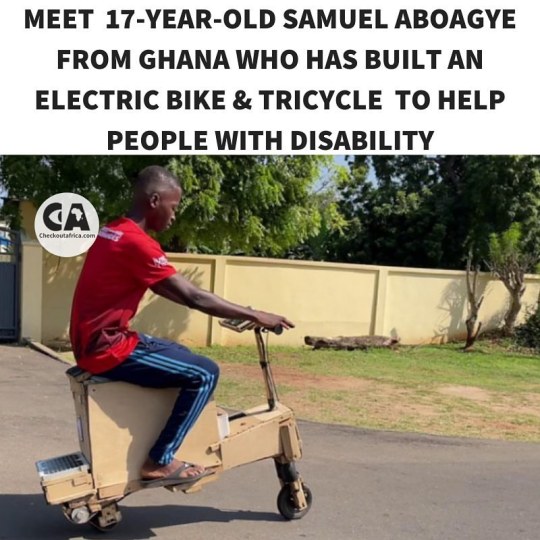
Ghana: 17-year-old Samuel Aboagye from Tema, Ghana, has built electric and solar-powered bikes & tricycles to help people living with disability. Samuel said that one doesn't need legs to ride his bike because when you release your hand from the brakes, the bike starts moving. . . . > CheckoutAfrica.com <| #Africa #African #EverythingAfrica #Africandevelopment #Africanpeople #Africanstyle #Checkoutafrica https://www.instagram.com/checkoutafrica_/p/CYjQOi9MSu-/?utm_medium=tumblr
68 notes
·
View notes
Link
"It is the Pentagon's Africom versus China's web of investments - the ultimate prize: Africa's natural resources."
'From energy wars to water wars, the 21st century will be determined by a fierce battle for the world's remaining natural resources. The chessboard is global. The stakes are tremendous. Most battles will be invisible. All will be crucial.
In resource-rich Africa, a complex subplot of the New Great Game in Eurasia is already in effect...'
Every time I read yet another article about Chinese investments, or any other foreign investment plans in Africa (excluding loans), be it a new railroad being built in Angola, extracting oil in Sudan, cutting up timber in Guinea or mining in Congo I hope that the African governments working with these foreign investors and business men are signing deals that will one day be of benefit to Africa as well as the investor-nations. Africa is in a very tricky position right now --- always has been actually, when it comes to resources. With many other continents running out of resources, Africa's own supplies seem to be stable. Though many argue that these billion dollar deals are crucial for development in the continent, I personally don't think we can ignore our brutal history when it comes to natural resources and the fight that comes with its consumption. There is a common stance on this issue when it comes to African leaders and foreign investment : they believe international finance is needed for development and they do not particularly care where it comes from. I think that African governments should act with a lot more caution than they currently are, and avoid the seemingly desperate rhetoric.
17 notes
·
View notes